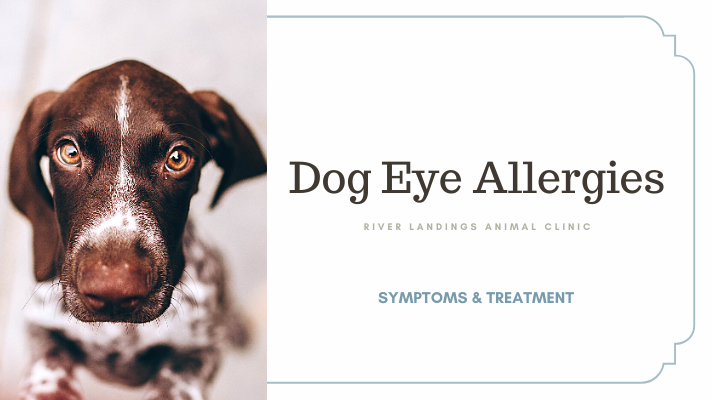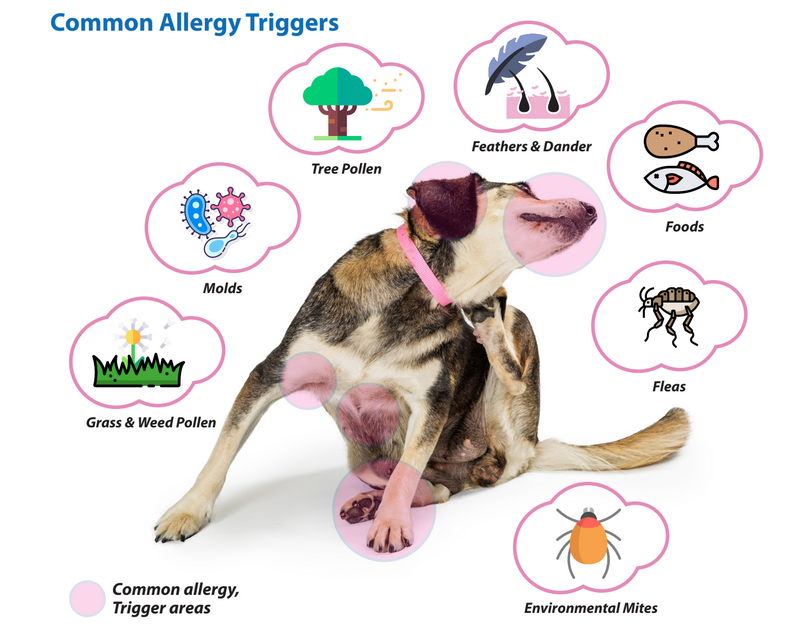Allergies are common in dogs and can significantly impact their quality of life. In this article, we will explore the causes of allergies in dogs, common symptoms, how to diagnose allergies, and effective management strategies to help alleviate your dog’s discomfort.

Understanding Allergies in Dogs
Allergies in dogs can be triggered by various factors:
Environmental Allergens
These include pollen, mold, dust mites, and grass, which can cause allergic reactions in sensitive dogs, leading to skin irritation and itching.
Food Allergies
Some dogs develop allergies to specific ingredients in their food, such as proteins (e.g., beef, chicken), grains (e.g., wheat, corn), or additives (e.g., artificial preservatives, colors).
Flea Allergy Dermatitis (FAD)
Flea bites can trigger an allergic reaction in some dogs, causing intense itching and discomfort.
Symptoms of Allergies in Dogs
Common symptoms of allergies in dogs include:
- Itching: Excessive scratching, licking, or chewing of the skin, paws, or ears.
- Skin Irritation: Redness, rash, hot spots, or scabbing.
- Ear Infections: Recurrent ear infections may indicate allergies.
- Gastrointestinal Issues: Vomiting, diarrhea, or flatulence (less common with food allergies).
Diagnosing Allergies in Dogs
To diagnose allergies in dogs, veterinarians may use the following methods:
- Elimination Diet: A trial period of feeding your dog a hypoallergenic diet to identify food allergies.
- Skin or Blood Tests: These tests can help identify specific allergens causing your dog’s symptoms.
- Flea Control: Checking for signs of fleas and treating if necessary to rule out flea allergy dermatitis.
Managing Allergies in Dogs
Effective management of allergies in dogs involves:
Environmental Management
- Allergen Avoidance: Minimize exposure to environmental allergens by keeping your dog indoors during high pollen seasons and regularly cleaning bedding.
- Air Purifiers: Use HEPA air filters to reduce allergens indoors.
Diet Management
- Hypoallergenic Diet: Switching to a hypoallergenic or limited ingredient diet to identify and eliminate food allergies.
- Quality Ingredients: Choose dog food free from common allergens like grains or artificial additives.
Medications and Treatments
- Antihistamines: Provide relief from itching and inflammation.
- Corticosteroids: Prescribed for severe allergic reactions to reduce inflammation.
- Immunotherapy: Allergy shots or drops can desensitize your dog to specific allergens over time.
Regular Veterinary Care
- Monitoring: Regular check-ups to monitor your dog’s condition and adjust treatment as needed.
- Preventive Care: Keep vaccinations and parasite control up to date to support your dog’s overall health.
Conclusion
Allergies can significantly impact a dog’s comfort and health. By understanding the causes, recognizing symptoms, and implementing effective management strategies, you can help alleviate your dog’s allergies and improve their quality of life. Consult with your veterinarian for proper diagnosis and personalized treatment options tailored to your dog’s specific needs.











